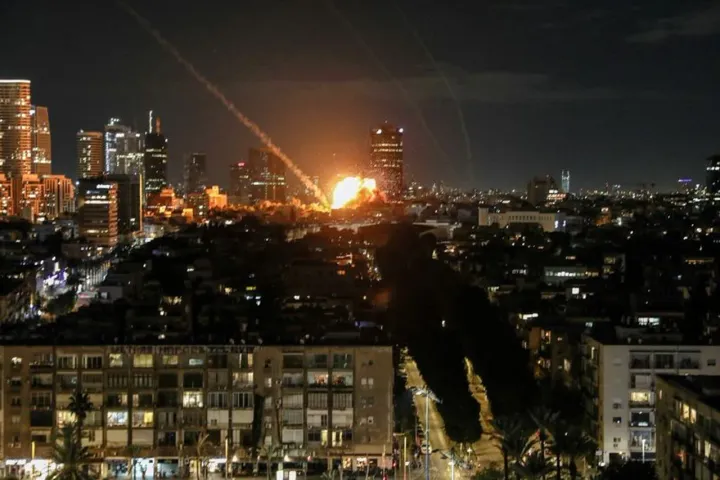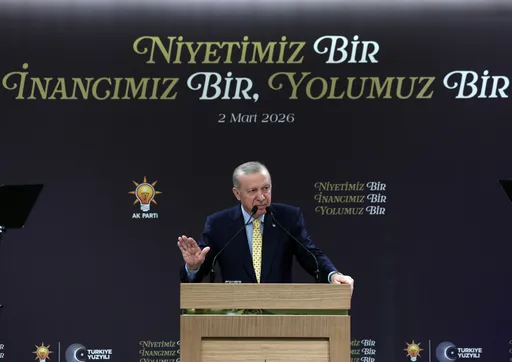It is not often the Taliban and Malala Yousufzai agree on something; yet in the chaotic world of Pakistani politics both publicly voiced their disapproval of the latest round of massacres taking place in Myanmar.
Despite the constant media noise in Pakistan that marginalised the fallout of the Trump speech and the BRICS statement on terrorism - there is no unanimity on what Pakistan should do, if anything, with regards to Myanmar. Pakistan’s foreign policy has never been about following a ‘Muslim’ agenda, however hard the government might try to spin it that way.
Furthermore, a country that has not had a foreign minister for over three years until recently, shall always struggle to articulate its narrative and strategy. Pakistan’s long-standing military ties with China and other countries in South East Asia shall always trump the Mullah’s calls for action and street protests.
In the last few days major religious parties in Pakistan have all voiced their disapproval of events in Myanmar and urged action by the Pakistani government, and the cabinet has followed suit by condemning it and calling for the global community to act.
But apart from public statements there is little the government or Pakistan in general can do to move on Myanmar.
There is a stream of accusations and criticism about the Pakistani military's support for the military leaders of Myanmar, and the Pakistan Air Force deal to sell the joint Chinese-built JF-17 fighter jet.
Pakistan remains one of the largest trainers of militaries in Asia. Pakistan-Myanmar relations peaked in 2015 when the Myanmar military reached out to Pakistan not just for training, but also in defence diplomacy on how to deal with Western pressure on balancing civil-military relations - an issue Pakistan is intimately familiar with. This was the time when Western militaries were also reaching out to generals in Myanmar in a bid to counter Chinese influence in the region. For Pakistan, the calculus was also to counter India.
It is no secret that the cat and mouse game taking place between India and Pakistan stretches from Afghanistan to Myanmar. With India’s growing ties and strength in Bhutan, Bangladesh and Sri Lanka, Pakistan had to act quick with Myanmar in 2015 as it saw British and American military officials cosying up to the Myanmar military.
Pakistan’s military also stepped up its efforts to train and host military officials from Myanmar. However, this was no different to its relations with other militaries in the region such as Indonesia and Malaysia.
In the absence of a strong prime minister, it can be argued that former Prime Minister Nawaz Sharif's brother is the most high profile political figure in the country, and his close ties with China would not allow him to take a very public and proactive stance against Myanmar - given relations between China and Myanmar.
So far Pakistan is following a similar path it trod in the Yemen debate two years ago when despite public pressure—especially from religious parties—the government refused to intervene on behalf of Saudi Arabia.
This time again, the same agitators are on the streets calling for action on Myanmar but apart from words there is little Pakistan can or will do to act. So why is this?
The sale of the aircraft to Myanmar is misunderstood and according to former Pakistan Air Force one-star General Kaiser Tufail, the recent sale of the aircraft to Myanmar was a deal struck by China, not Pakistan. Pakistan manufactured 58 percent of the airframe while it was China that "completed the package and sold it to Myanmar."
General Tufail summed up the deal and its complications, "Pakistan and China are not bound by any contract to market the JF-17 aircraft together, and can choose any country who they can sell it to on an individual basis. The likelihood of either Pakistan or China being at odds with a prospective customer who is contrarily friends with the other one, may not have been foreseen in depth, and always carried the possibility of a complicated issue arising as in the case of Myanmar. Pakistan is not in a position to pressurize China to undo this deal, though I suspect that the concerns of the government may have been conveyed through backdoor means."[if !supportLineBreakNewLine]
In light of the massacre of the Rohingya and the extent of Pakistan's relationship with Myanmar General Tufail says, "Pakistan has had low key relations with Myanmar, restricted to the training of a few-odd officers at its academies and staff colleges. As a response to the Rohingya crisis, Pakistan can do well to suspend these military ties, alongside a clear message of condemnation of the massacre of Muslims."
It seems highly unlikely that Pakistan will reign in its military ties.
In a changing regional landscape and a resurgent Russia and more assertive China, Pakistan can ill-afford to upset China. As the US puts more pressure on Pakistan and gets closer to Pakistan's arch enemy India, the Pakistani military shall encroach further into South East Asia to counter Indian influence east of the Indus.
However, military ties or fighter jet deals does not mean the Pakistani military endorses the killing. The logic is that it is simply an internal matter for Myanmar to deal with.
In the end it is not just the Myanmar military to blame, there is a wider 'Muslim' issue with increased militancy in Philippines, Bangladesh and Indonesia. Pakistani based terror groups have had linkages, and all these militaries and intelligence agencies share a common national security threat.
Furthermore there is also a consensus in Pakistan now, that Pakistan should not pick and choose its ‘Muslim’ concerns. Pakistan has consistently overlooked China’s persecution of Muslims whilst actively pursuing any Chinese Uyghur dissidents and religious preachers that were either on its territory or elsewhere in the region.
Pakistan’s military and main political parties will wait and see how things pan out before taking any major action that would upset China, or let India advance its relations with Myanmar at the expense of Pakistan.
However, Pakistan can take advantage of its relationship with Myanmar. One military analyst with considerable knowledge of the Myanmar army told me that like former President of Myanmar Thein Sein, Aung San Suu Kyi has little authority to "act or restrain the Myanmar security apparatus" and is likely biding her time waiting for a moment when she can act.
"This is where outside assistance becomes important; to bolster her authority and to restrain the Tatmadaw [Myanmar Army], whilst, at the same time supporting the refugees in Bangladesh. Pakistan has a role as do many others - they must act if we are to avoid a worse humanitarian catastrophe and the emergence of yet another branch of Islamic State using the Rohingya militant movement as a trojan horse. Engagement with the Tatmadaw is important and this may be best done using the defence diplomacy channel. Can Pakistan use its influence?"
Given the need for Western militaries to work with Myanmar, Pakistan and its military certainly cannot look the other way.
Despite regional alignments and new geopolitical trends Pakistan is very much part of the global security order; it has relationships with 56 militaries in terms of training and MOUs, and Myanmar is one of them.
Pakistan also sees working and talking to Myanmar as the best way out of it despite the uproar on its streets and in its media houses.























